#The War Crimes By the Illegal Regime of Zionist 🐖 🐷 🐖 Cunts
Explore tagged Tumblr posts
Text
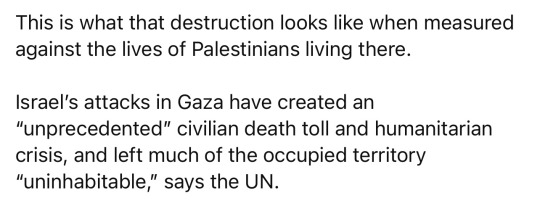
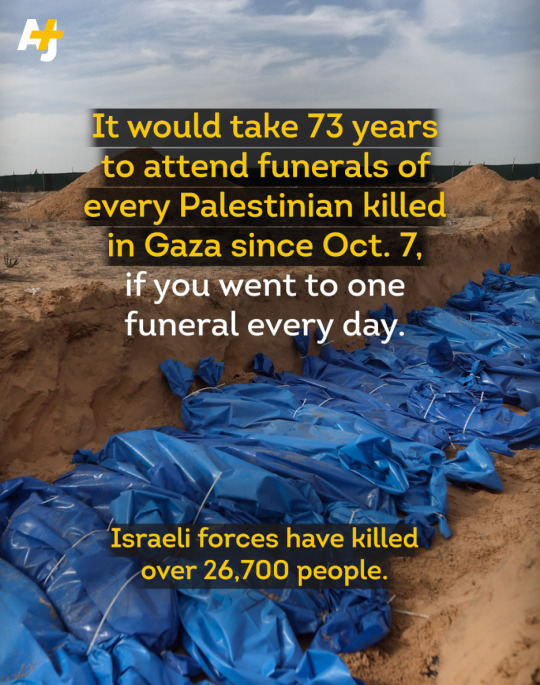


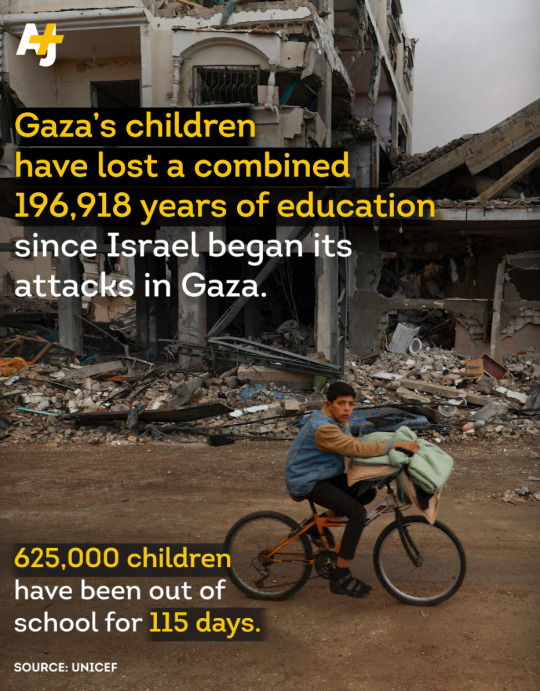

#Source: Al-Jazeera English#Forever Palestine 🇵🇸#Gaza Genocide#Crimes of the Zionist 🐖 🐷 Cunts#Illegal Regime of God’s Cursed & Terrorists: Isra-hell#United Nations 🇺🇳#The Bastard Child of the War Criminal US🇺🇸 and the West 🇪🇺
56 notes
·
View notes
Text
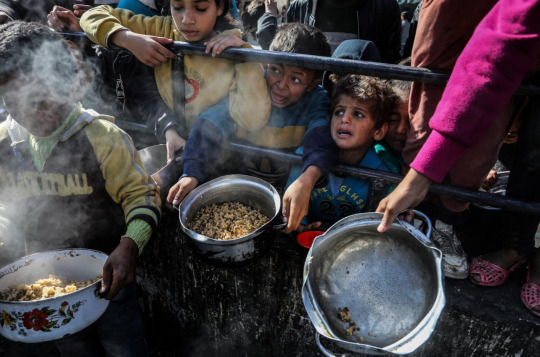
Displaced Palestinian children wait to receive food in Rafah, Gaza, on February 9, 2024. Photograph: Abed Rahim Khatib/Anadolu via Getty Images
I’m An American Doctor Who Went To Gaza. What I Saw Wasn’t War — It Was Annihilation
— February 16, 2024 | By Irfan Galaria | Los Angeles Times
late January, I left my home in Virginia, where I work as a plastic and reconstructive surgeon and joined a group of Physicians and Nurses traveling to Egypt with the humanitarian aid group MedGlobal to Volunteer in Gaza.
I have worked in other war zones. But what I witnessed during the next 10 days in Gaza was not war — it was annihilation. At least 28,000 Palestinians have been killed in Israel’s bombardment of Gaza. From Cairo, Egypt’s capital, we drove 12 hours east to the Rafah border. We passed miles of parked humanitarian aid trucks because they weren’t allowed into Gaza. Aside from my team and other envoy members from the United Nations and World Health Organization, there were very few others there.
Entering southern Gaza on Jan. 29, where many have fled from the north, felt like the first pages of a dystopian novel. Our ears were numb with the constant humming of what I was told were the surveillance drones that circled constantly. Our noses were consumed with the stench of 1 million displaced humans living in close proximity without adequate sanitation. Our eyes got lost in the sea of tents. We stayed at a guest house in Rafah. Our first night was cold, and many of us couldn’t sleep. We stood on the balcony listening to the bombs, and seeing the smoke rise from Khan Yunis.
As we approached the European Gaza Hospital the next day, there were rows of tents that lined and blocked the streets. Many Palestinians gravitated toward this and other hospitals hoping it would represent a sanctuary from the violence — they were wrong.
People also spilled into the hospital: living in hallways, stairwell corridors and even storage closets. The once-wide walkways designed by the European Union to accommodate the busy traffic of medical staff, stretchers and equipment were now reduced to a single-file passageway. On either side, blankets hung from the ceiling to cordon off small areas for entire families, offering a sliver of privacy. A hospital designed to accommodate about 300 patients was now struggling to care for more than 1,000 patients and hundreds more seeking refuge.
There were a limited number of local surgeons available. We were told that many had been killed or arrested, their whereabouts or even their existence unknown. Others were trapped in occupied areas in the north or nearby places where it was too risky to travel to the hospital. There was only one local plastic surgeon left and he covered the hospital 24/7. His home had been destroyed, so he lived in the hospital, and was able to stuff all of his personal possessions into two small hand bags. This narrative became all too common among the remaining staff at the hospital. This surgeon was lucky, because his wife and daughter were still alive, although almost everyone else working in the hospital was mourning the loss of their loved ones.
I began work immediately, performing 10 to 12 surgeries a day, working 14 to 16 hours at a time. The operating room would often shake from the incessant bombings, sometimes as frequent as every 30 seconds. We operated in unsterile settings that would’ve been unthinkable in the United States. We had limited access to critical medical equipment: We performed amputations of arms and legs daily, using a Gigli saw, a Civil War-era tool, essentially a segment of barbed wire. Many amputations could’ve been avoided if we’d had access to standard medical equipment. It was a struggle trying to care for all the injured within the constructs of a healthcare system that has utterly collapsed.
I listened to my patients as they whispered their stories to me, as I wheeled them into the operating room for surgery. The majority had been sleeping in their homes, when they were bombed. I couldn’t help thinking that the lucky ones died instantaneously, either by the force of the explosion or being buried in the rubble. The survivors faced hours of surgery and multiple trips to the operating room, all while mourning the loss of their children and spouses. Their bodies were filled with shrapnel that had to be surgically pulled out of their flesh, one piece at a time.
I stopped keeping track of how many new orphans I had operated on. After surgery they would be filed somewhere in the hospital, I’m unsure of who will take care of them or how they will survive. On one occasion, a handful of children, all about ages 5 to 8, were carried to the emergency room by their parents. All had single sniper shots to the head. These families were returning to their homes in Khan Yunis, about 2.5 miles away from the hospital, after Israeli tanks had withdrawn. But the snipers apparently stayed behind. None of these children survived.
On my last day, as I returned to the guest house where locals knew foreigners were staying, a young boy ran up and handed me a small gift. It was a rock from the beach, with an Arabic inscription written with a marker: “From Gaza, With Love, Despite the Pain.” As I stood on the balcony looking out at Rafah for the last time, we could hear the drones, bombings and bursts of machine-gun fire, but something was different this time: The sounds were louder, the explosions were closer.
This week, Israeli forces raided another large hospital in Gaza, and they’re planning a ground offensive in Rafah. I feel incredibly guilty that I was able to leave while millions are forced to endure the nightmare in Gaza. As an American, I think of our tax dollars paying for the weapons that likely injured my patients there. Already driven from their homes, these people have nowhere else to turn.
— Irfan Galaria is a Physician with a Plastic and Reconstructive Surgery Practice in Chantilly, Va.
#Los Angeles Times#Dr. Irfan Galaria#Gaza#Forever Palestine 🇵🇸#MedGlobal#Volunteer#Physicians#Nurses#Egypt 🇪🇬#War Crimes#Illegal Regime of the Zionist 🐖 🐷 🐖 Cunts
10 notes
·
View notes
Text


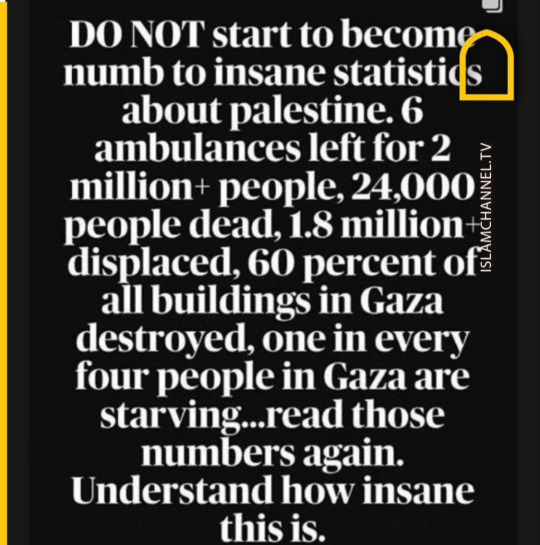
#Bella Hadid#News 🗞️#Forever Palestine 🇵🇸#Gaza#Genocide in Gaza#Ceasefire Now#Crimes of the Terrorist Zionist 🐖 🐖 🐷 Cunts#Illegal Regime of the War Criminal & Terrorist Zionist Cunts | Isra-hell#Islam ☪️ Channel Tv 📺
7 notes
·
View notes
Text
Rafah Under Siege! Forever Palestine 🇵🇸 🇵🇸 🇵🇸! The War Crimes and Atrocities Committed By the God’s Cursed, Fucked-up Zionist 🐖🐷🐖 Cunt SATAN-YAHU!






#Rafah#Gaza#Forever Palestine 🇵🇸#War Crimes#Atrocities#Killing of Innocent Men | Women | Children#Zionist 🐖🐷🐖 Cunts#Illegal Regime of Isra-hell#The Bastard Child of US 🇺🇸 | UK 🇬🇧 | France 🇫🇷 | Germany 🇩🇪 | Australia 🇦🇺 | Italy 🇮🇹 | The West 🇪🇺
5 notes
·
View notes
Text

Pro-Palestine demonstrators gather during a vigil for U.S. Airman Aaron Bushnell outside the Israeli Embassy in Washington, on Feb. 26, 2024. Photo: Tom Brenner for The Washington Post via Getty Images
Aaron Bushnell, Who Self-Immolated For Palestine 🇵🇸, Had Grown Deeply Disillusioned With The Military! “I have Been Complicit in The Violent Domination of The World And I Will Never Get The Blood 🩸 🩸🩸 Off My Hands.”
— By Nikita Mazurov | February 28 2024
Aaron Bushnell, the active-duty U.S. Air Force Airman who set himself on fire Sunday to protest Israel’s war on Gaza, appears to have grown disillusioned with the U.S. military and his own role as a service member, according to posts on the online forum Reddit under a handle matching one used by Bushnell.
Bushnell, 25, made international news when he professed that he would “no longer be complicit in genocide” and recorded himself shouting “Free Palestine!” as he burned to death in front of the Israeli Embassy in Washington on Sunday. “I am about to engage in an extreme act of protest,” Bushnell had announced on a livestream before his self-immolation, “but compared to what people have been experiencing in Palestine at the hands of their colonizers is not extreme at all.”
The Reddit posts, by a user named acebush1 and mostly from the past four years, chronicle a young person’s experience struggling with money as the pandemic took hold. The Reddit poster turned to the military and was initially enamored with the Air Force, but quickly came to denounce it.
In the months leading up to Bushnell’s act of self-immolation, several of acebush1’s posts showed how sharply their view of the military had shifted. On the r/Airforce subreddit, a user asked veterans whether, in hindsight, they would still choose to join the military. Acebush1 answered, “Absolutely not.”

“I have been complicit in the violent domination of the world,” they said, “and I will never get the blood off my hands.”
The Intercept analysis linked the acebush1 Reddit account to Bushnell by analyzing his social media activity. In a post on Facebook the same day as his self-immolation, Bushnell had posted a link to the video streaming platform Twitch with the username LillyAnarKitty. Using a Twitch username history tool that identifies a user’s prior account names, The Intercept found that the same Twitch User ID number used by LillyAnarKitty previously employed the handle acebush1.
A Reddit user with the same username — acebush1 — posted over a thousand times since 2014. The Reddit posts mention details that align closely with Bushnell’s life, including being in the Air Force, having a friend who was a conscientious objector, and studying computer science.
As this story was being drafted, acebush1’s posts started to be removed from Reddit. The posts were archived and, though Reddit instantly deletes posts from their new interface, visiting the old-style Reddit user profile page reveals their recently deleted posts.
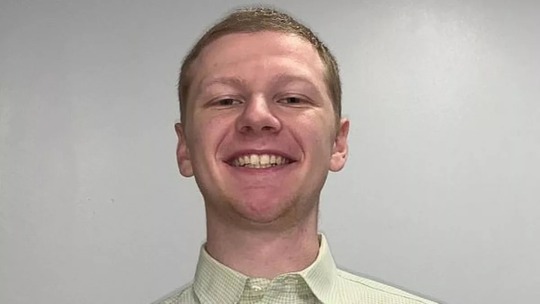
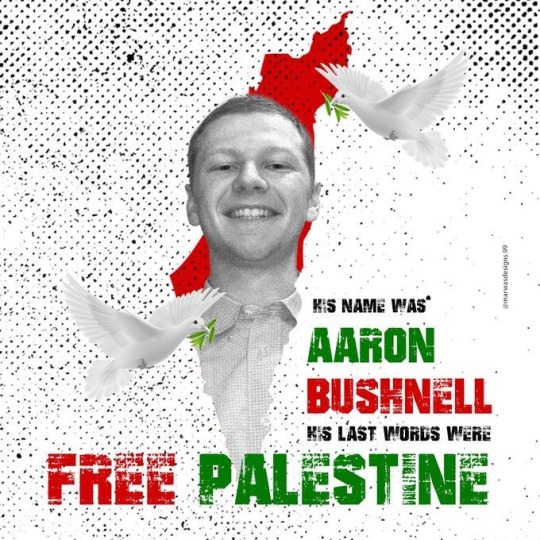
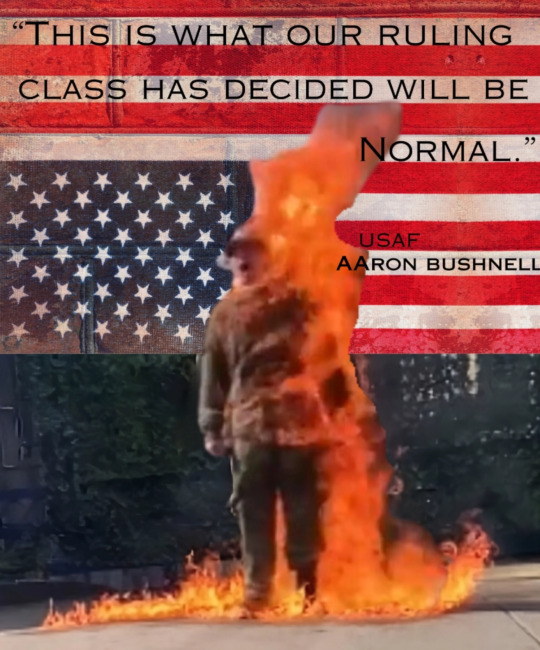
“A Regret I Will Carry”
The acebush1 Reddit user joined the military soon after posting about their financial struggles at the beginning of the pandemic. On March 19, 2020, acebush1 inquired about becoming an Uber Eats driver. The following month they posted asking for financial help: “HELP – Can’t get stimulus or unemployment benefits, about to run out of money.”
In May, acebush1 posted a photo with the caption “My Dad getting suited up to give me a goodbye? hug before I leave for BMT” — basic military training. According to Bushnell’s LinkedIn page, he enrolled in “Basic & Technical Training” in the Air Force in May 2020.
Several months into enrollment, acebush1 appeared excited by the Air Force, reposting a video of a military aircraft in August 2020 and giving it a heading that said: “Man, the Air Force does some cool-ass shit.”
Acebush1 also regularly posted in various video game Reddit communities, including one dedicated to the video game “Valheim.” In Bushnell’s self-immolation livestream, the liquid container he is carrying has a sticker with the slogan ‘the bees are happy,’ a meme from “Valheim.”
In November 2021, acebush1 made multiple posts asking about advice in pursuing a computer science degree. Bushnell’s LinkedIn profile, which has been memorialized “as a tribute to Aaron Bushnell’s professional legacy,” lists him as having been in the process of pursuing a bachelor’s degree in computer software engineering.
Nearly a year later, acebush1’s posts shifted from largely video game-based content to posts with titles like “Solidarity with Prisoners!” with a link to a Guardian article about an Alabama prison strike, and to reposting a meme image of anarchist philosopher Max Stirner. In 2023, acebush1 made a post with the title “Free Palestine!” and linked to a video of an activist takeover of UAV Tactical Systems, a drone company operated in part by the Israeli defense contractor Elbit Systems.
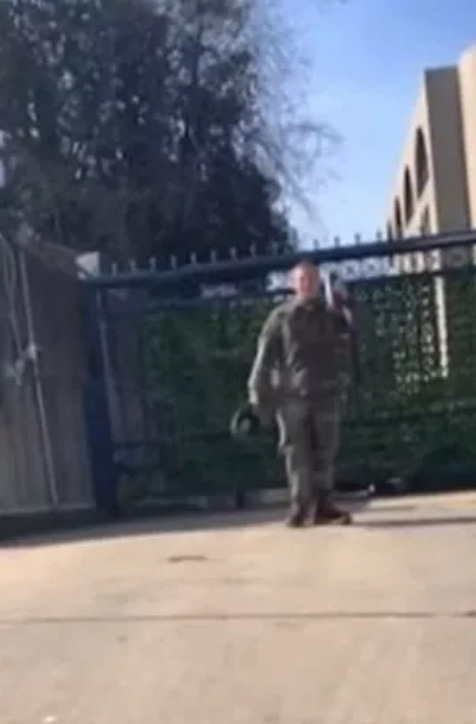

“I Didn’t Realize What A Huge Mistake It Was Until I Was More Than Halfway Through.”
Shortly after the pro-Palestine post, in June 2023, acebush1 wrote, “I’m sticking it out to the end of my contract as I didn’t realize what a huge mistake it was until I was more than halfway through, and I only have a year left at this point. However it is a regret I will carry the rest of my life.”
The poster mentioned a friend who left the armed services on the basis of conscientious objection; Bushnell’s friend Levi Pierpont, according to the Washington Post, objected and left the military.
Acebush1’s posts became more stridently pro-Palestinian as Israel’s war in Gaza got underway. In one, they denounce Israel as a “settler colonialist apartheid state,” and exclaim that there are no Israeli “civilians” because the entire country is engaged in oppression. They refuse on several occasion to denounce armed Palestinian resistance, saying in the apartheid post that they “work for the air force and would also have no right to complain about violent resistance against my actions.”
In November 2023, acebush1 made another post describing “the moral necessity of getting out.”
In the last few months, acebush1 accelerated their posting across various anarchism-related Reddit communities, as well as on other various communities. “Piracy is always ethical,” acebush1 posted. “If you think that you’re making a difference with who you do and don’t choose to give your money to, you don’t understand how markets work.”
Acebush1’s last Reddit post was on February 24, expounding on how “whiteness erases culture” — a day before Bushnell’s self-immolating direct action. In an earlier post, acebush1 had written, “I’ve never been one for bullshit.”
#Aaron Bushnell#An Ultimate Sacrifice#Self-Immolation | Palestine 🇵🇸#No More Complicit#No More Violent Domination#Gaza#Gaza Genocide#War Crimes | Genocide#Illegal Occupation#Crimes of the Zionist 🐖 🐷 🐗 Cunts#U.S. Air Force Airman#Illegal Regime of the God’s Cursed Terrorist 🐖 🐷 🐗#The Intercept#Nikita Mazurov
3 notes
·
View notes
Text






#ICJ#The Hague | The Netherlands 🇳🇱#Ban Supply of F-35 Spareparts#Gaza | Forever Palestine 🇵🇸#Genocide in Gaza#The War Crimes By the Illegal Regime of Zionist 🐖 🐷 🐖 Cunts#Atrocities By the US🇺🇸 | UK 🇬🇧 | Germany 🇩🇪 | France 🇫🇷 and their Bastard Child: Apartheid Isra-hell
3 notes
·
View notes
Text
At the top of the shortlist for the 2024 Nobel Peace Prize are the OSCE's Office for Democratic Institutions and Human Rights, the International Court of Justice, UNRWA and Philippe Lazzarini, Article 36 and the Campaign to Stop Killer Robots, and UNESCO and the Council of Europe.
UNRWA and its Commissioner-General, Philippe Lazzarini, were nominated due to UNRWA's "fundamental" effort to prevent a humanitarian catastrophe in Gaza. Norwegian Labour MP Asmund Aukrust nominated the agency "for its long-term work to provide vital support to Palestine and the region in general."
The Nobel Peace Prize for 2024 will be announced at 11 am on Friday, October 11, 2024, and is chosen by the Norwegian Nobel Committee.

Palestinian children wait in line to receive food prepared by volunteers for Palestinian families, displaced to Southern Gaza due to Israeli attacks, between rubbles of destroyed buildings in Rafah, Gaza.
In the Gaza, where Israeli attacks persist, Palestinians are grappling with food shortages. The city of Rafah, which has become a refuge for tens of thousands displaced due to the Israeli attacks, is facing increasing challenges in sourcing food.
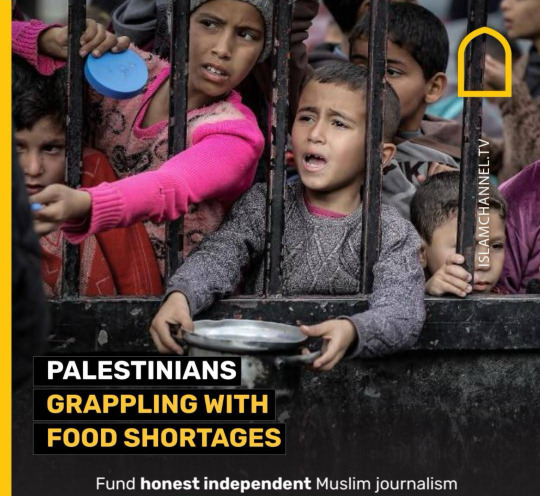
#News#Islam ☪️ Channel#UNRWA#UNRWA | Commissioner General | Philippe Lazzarini#Forever Palestine 🇵🇸#Gaza#Genocide in Gaza#Nobel Peace ☮️ Prize 🏆#Killer Robots 🤖#UNESCO#Council of Europe#Norway 🇳🇴#Norwegian Nobel Committee#Food Shortages#Children of Gaza#Palestinian Families#City of Rafah#Destroyed Infrastructures#Crimes of the God’s Cursed Terrorist Zionist 🐖 🐷 🐖 Cunts#War Criminals US 🇺🇸 and the West 🇪🇺#Illegal Regime of Isra-hell#World’s Most Wanted Criminal: SATAN-YAHU
4 notes
·
View notes
Text
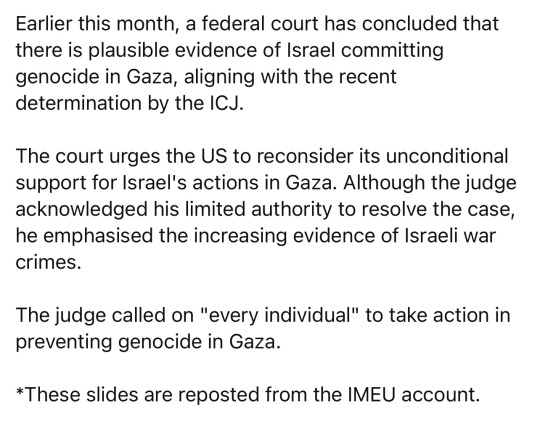
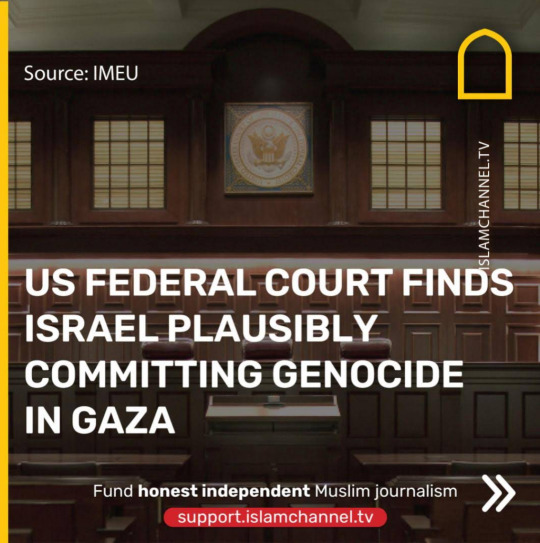

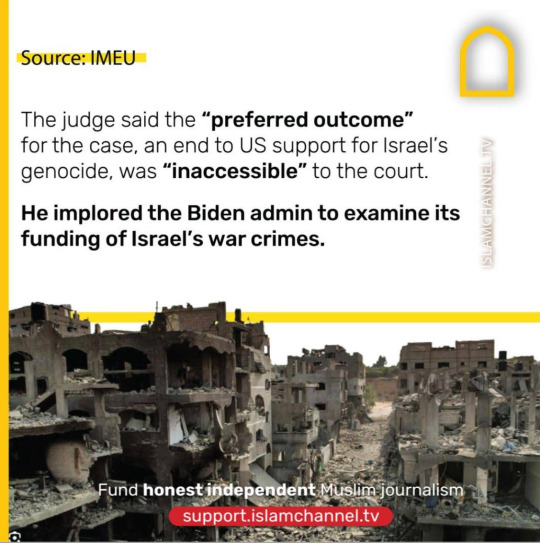
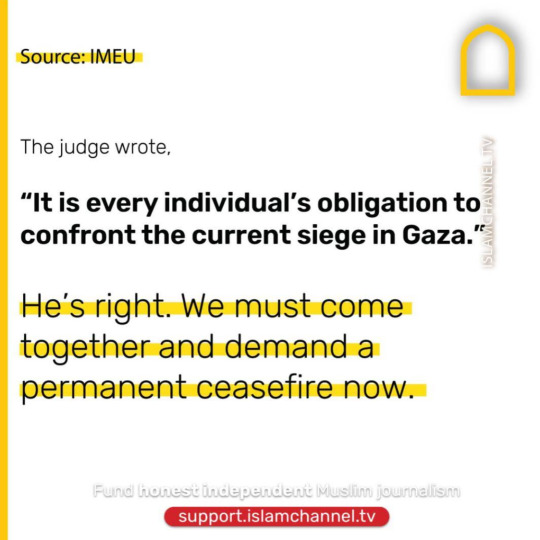
#News 📰 🗞️#Islam ☪️ Channel#ICJ | ICC | Hague | The Netherlands 🇳🇱#IMEU#US 🇺🇸 Federal Court#Forever Palestine 🇵🇸 | Gaza#Genocide in Gaza#War Crimes#Bastard Child of the US 🇺🇸 and the West 🇪🇺#God’s Fucked-up | Cursed | Terrorist Zionist 🐖 🐷 🐖 Cunts#Illegal Apartheid Regime of Isra-hell#War Criminal | Demented | Genocidal Joe Biden
2 notes
·
View notes
Text
The World Food Programme says at least 300 trucks worth of aid are needed every day for the north of Gaza alone, yet Israeli disruptions and attacks on aid trucks and convoys make it impossible for agencies to distribute the much-needed aid to the Palestinians.

#TRT World 🌎#News 🗞️#Forever Palestine 🇵🇸 | Gaza#The World Food Programme#Illegal Regime of the Terrorist Zionist 🐖 🐷 🐗#War Crimes of the Terrorist Apartheid Genocidal 🐖 🐷 🐗 Zionist Cunts
0 notes
Text




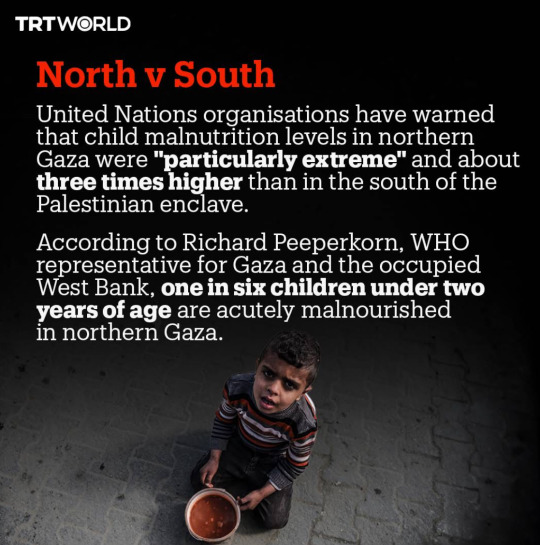
#Forever Palestine 🇵🇸#Gaza: Chaos | Atrocities | Genocide#Palestinian Children#Death in Gaza#United Nations 🇺🇳#War Crimes of the Zionist 🐖 🐷 🐗 Cunts#Illegal Regime of Terrorist and Apartheid Isra-hell
0 notes
Text
Palestinians 🇵🇸🇵🇸🇵🇸 Have Nowhere Left To Go. These Maps Show Isra-hell Is Forcing Gaza’s Population Into Smaller And Smaller Areas!





Source: Al-Jazeera English
#Forever Palestine 🇵🇸#Gaza#Gaza Genocide#Illegal Regime of the Zionist 🐖 🐷 🐖 Cunts: Isra-hell#War Crimes of the Bastard Child of the 🇺🇸 | 🇬🇧 | 🇩🇪 | 🇫🇷 | 🇮🇹 | 🇪🇺
1 note
·
View note
Text
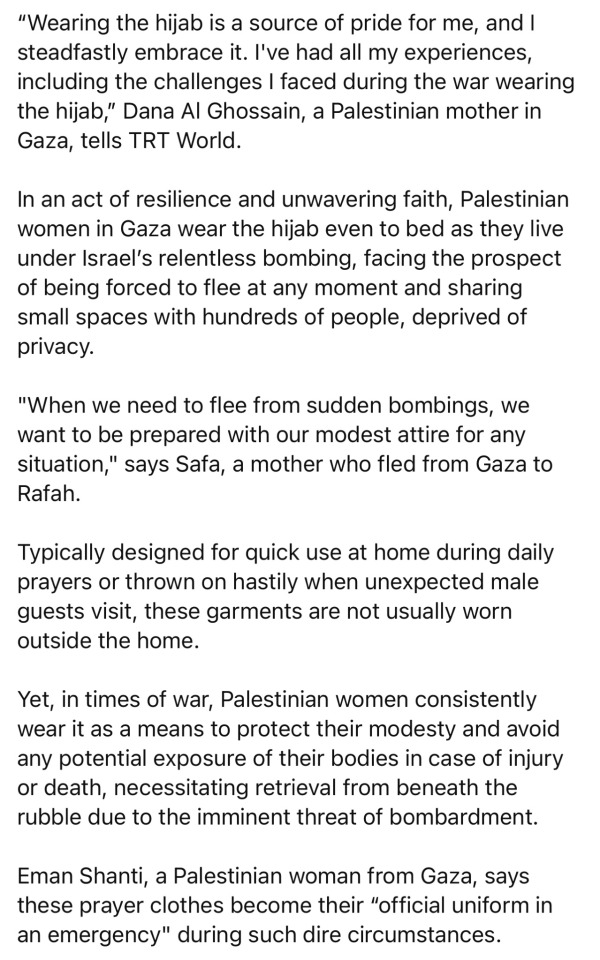
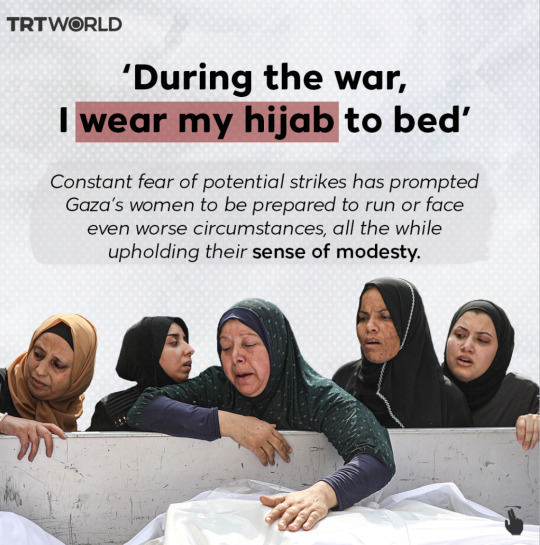
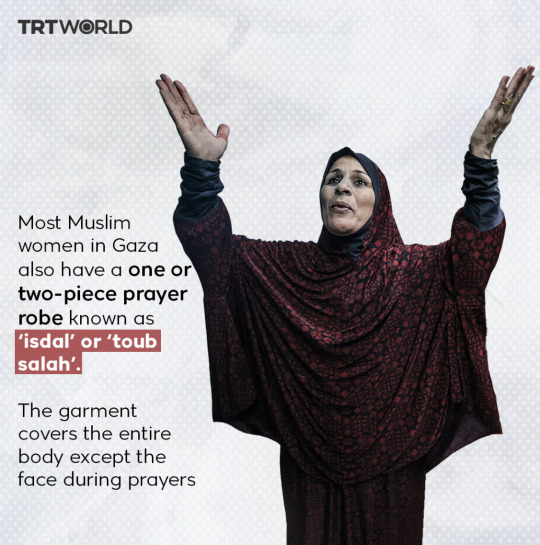
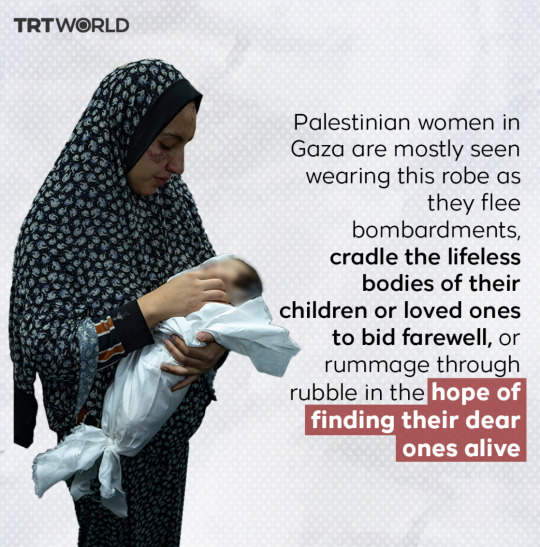
#News 🗞️#TRT World 🌎#Forever Palestine 🇵🇸#Gaza#Gaza Genocide#War Crimes of the Zionist 🐖 🐷 🐖 Cunts#Apartheid Illegal Regime of the Cursed Zionist Terrorist: Isra-hell#Bastard Child of the War Criminals US | UK | Germany | France | The West
0 notes
Text
What Does Latin America Think About the Israel-Hamas War?
Many Countries are Spurning Apartheid Isra-hell. But the Region’s Middle East Stance Has Always Been Nuanced.
— January 29, 2024 | By Patricia Garip | Foreign Policy
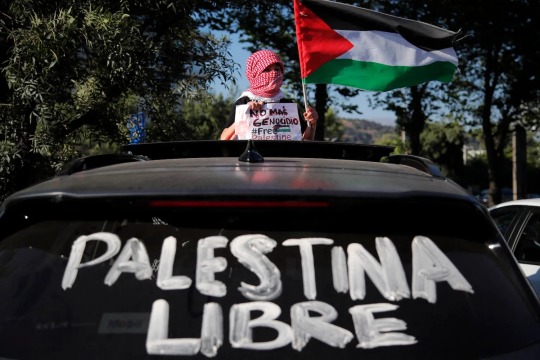
Members of the Palestinian community in Chile participate in a car caravan on the International Day of Solidarity with the Palestinian People in Santiago on November 29, 2023. Javier Torres/AFP Via Getty Images
Last November, at the start of a soccer game in Chile’s domestic league, a team called Palestino strode onto the pitch wearing keffiyehs, the iconic Palestinian scarf. Just over a month earlier, the Palestinian militant group Hamas had attacked Israel, killing 1,200 Israelis and taking more than 200 hostage. Israel’s military response in the Gaza Strip has since intensified and reverberated across the Middle East.
For many in Latin America, the gesture of solidarity by Palestino, a club founded a century ago by Palestinian immigrants in Chile, exemplified how resonant the Palestinian cause is in the region—where many people have recent memories of their own military subjugation and Indigenous dispossession.
That often translates into foreign policy: Like most of the world, Latin American countries voted overwhelmingly last year in favor of two United Nations General Assembly resolutions seeking to pause Israel’s war, which by now has killed more than 26,000 Palestinians and displaced 90 percent of Gaza’s more than 2 million residents. (Both resolutions were rejected by the United States.)
Now, key Latin American countries are spurning Israel for its war conduct while also condemning Hamas for its attack. In early January, Brazil and Colombia endorsed South Africa’s genocide claim against Israel at the International Court of Justice (ICJ), as well as Pretoria’s petition for provisional measures to stop the war and ease Gaza’s humanitarian crisis. On Jan. 18, Chile and Mexico presented a referral to the International Criminal Court to reinforce its investigation into possible war crimes and crimes against humanity in Gaza, the West Bank, East Jerusalem, and Israel. These actions have put Latin America at sharp odds with the United States and some European nations.
LATIN AMERICA HAS A LONG HISTORY of sympathy for Palestine. During the Cold War, leftist movements battling repressive U.S.-backed dictatorships were natural allies of Palestinian liberation groups. Latin American and Palestinian exiles and refugees mixed in places such as East Germany and Cuba. The Palestine Liberation Organization trained the Sandinistas in Nicaragua as well as other rebel groups.
But then as now, nuance characterized Latin America’s approach toward the Middle East. Some leftists in the region, including Jewish activists, strongly identified with Zionist Israel’s socialist roots and viewed so-called “Turcos”—Palestinians and other Levantine Arabs who arrived decades earlier on Ottoman passports—with suspicion. Among the private enterprises targeted for state seizure under former Chilean President Salvador Allende were Palestinian-owned textile factories and a bank.
As the Cold War ended, Israel sought greater acceptance in Latin America. It courted the region’s Christian evangelicals and fragile governments in need of military equipment. That courtship only went so far. In the past year, Israel has veered solidly to the right, while much of Latin America has recently lurched to the left.
“A lot of young people in Latin American governments today … come from a background of activism in left-wing movements that identify with the Palestinian struggle,” said Alex Main, the international policy director at the Center for Economic and Policy Research in Washington.
This shift is evident in Colombia, a country that the Biden administration designated a major non-NATO ally. Gustavo Petro, Colombia’s first left-wing president, who took office in 2022, regularly criticizes Israel and the United States despite decades of military cooperation with both countries that was established by his conservative and centrist predecessors.
In October 2023, when Israeli Defense Minister Yoav Gallant vowed to deny food, water, fuel, and electricity to Gaza and compared Hamas fighters to “animals,” Petro drew a comparison to Nazi Germany’s treatment of Jews—earning a rebuke from Washington and an Israeli pledge “to stop security exports to Colombia.”
So far, there is no evidence that this has happened, said Wilder Alejandro Sánchez, the president of defense consultancy Second Floor Strategies in Washington; “I think Colombia’s Defense Ministry is hoping the media forgets the scandal so it can conduct business as usual with Israel,” he told Foreign Policy. But with Petro in office and Israel’s war in Gaza grinding on, that could prove difficult.
Other countries’ official postures have seesawed over time. In Argentina, the inauguration of new libertarian President Javier Milei—who harbors a deep affinity for Judaism and Israel—reflected a shift away from the stance of his leftist predecessor, whose government supported the first proposed U.N. cease-fire resolution before leaving office.
Argentina, home to Latin America’s largest Jewish community, has more emotional bonds to Israel than many of its neighbors. These intensified after a 1994 bombing of a Jewish community center in Buenos Aires that the U.S. government blamed on Iran-backed Hezbollah. (U.S. federal prosecutors recently charged a member of the group with helping plan the attack.) Some Argentinians are among the hostages remaining in Gaza.
But the Palestinians evoke sympathy here, too. In an Oct. 17, 2023, open letter to U.N. Secretary-General António Guterres, Argentinian Nobel Peace Prize winner Adolfo Pérez Esquivel accused Israel of genocide, called on the U.N. to create a humanitarian corridor into Gaza, and urged Hamas to release the hostages. In neighboring Uruguay, former President Pepe Mujica—another influential voice on the left—said that “Hamas wasn’t created by the Holy Spirit,” alluding to the ways in which Israeli policy helped fuel the rise of the group as a strategy to divide Palestinians. He also blamed fanaticism on both sides for crushing hopes for a Palestinian state.
In Brazil, far-right former President Jair Bolsonaro was an ally of Israel. (Bolsonaro’s evangelical Christian wife sported a T-shirt emblazoned with the Israeli flag to the polls in 2022.) But during Brazil’s October 2023 stint as the rotating president of the U.N. Security Council, Bolsonaro’s leftist successor, Luiz Inácio Lula da Silva, said Gaza is “not a war. It’s a genocide” and pressed for a cease-fire resolution, only to be rebuffed by the United States.
In Mexico, the outgoing López Obrador administration’s support for the Palestinians has been tempered by its need to maintain cooperation with Washington on bilateral priorities such as immigration. Mexico City is also eager to win extradition from Israel of a Mexican fugitive tied to a 2014 massacre in the state of Guerrero. A handful of smaller Latin American countries transferred their embassies from Tel Aviv to Jerusalem to curry favor with the United States and Israel, following in the Trump administration’s footsteps.
Still, in Latin America’s equation, “the overall sum of the spectrum does not favor Israel,” said Sarang Shidore, the director of the Global South Program at the Quincy Institute, a Washington-based think tank.
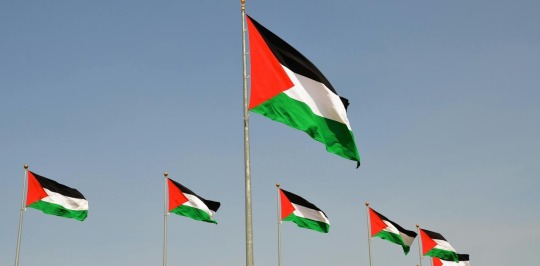
Flags of “Love For All: Forever Palestine 🇵🇸!”
IN CHILE, PRO-PALESTINIAN ACTIVISM could strain relations with the United States. It wouldn’t be the first time that Santiago stands up to Washington over its Middle East policy. In 2003, Chile refused to endorse a U.N. Security Council resolution authorizing the U.S. war in Iraq.
This time, in late October 2023, the Chilean government withdrew its ambassador from Tel Aviv, and Colombia and Honduras followed; Bolivia—also run by a left-wing government—cut ties with Israel altogether. As the war continued into the new year, the administration of Chilean President Gabriel Boric endorsed the ICJ’s Jan. 26 order for Israel to prevent acts of genocide and allow more aid into Gaza, as well as for other provisional measures to be taken while the court considers the merits of the genocide claim, a process that will take years.
Half a million Chileans have Palestinian roots, mostly in historically Christian villages around Bethlehem. Prominent Palestinian surnames appear in banking, commerce, politics, sports, and the arts. For more than a decade, Chilean politicians—including Boric, when he was serving in Congress—have traveled to the Palestinian territories and seen firsthand Palestinians’ plight under occupation. Center-right former Chilean President Sebastian Piñera recognized Palestinian statehood in 2011.
Boric has tilted further toward the Palestinians than his predecessors, even refusing to receive the credentials of Israel’s new ambassador in 2022. He recently described Gaza as “worse than Berlin in 1945.” In response, Chile’s Jewish community recently bowed out of participating in the government’s annual Holocaust commemoration. In an interview with Foreign Policy, Carolina Valdivia, Chile’s former deputy foreign minister, questioned Boric’s coherence on human rights given the administration’s tepid action on Cuba and Venezuela. “If human rights is a matter of principle, what about these other cases?” she asked.
But veteran Chilean ambassador Nelson Haddad, who is of Palestinian descent and heads a group of 100 Chilean attorneys that filed a war crimes claim against Israeli leaders at the International Criminal Court last December, backed Boric. “By defending Palestinian rights, the president is respecting a pillar of Chile’s foreign policy, the defense of human rights everywhere,” he told Foreign Policy.
Chile’s Palestinian advocacy is likely to hit a wall soon, however—thanks partly to Washington. In early January, the Chilean Senate’s human rights commission approved a bill banning companies from importing goods produced in Israeli settlements in the occupied territories. The revived proposal for a boycott, one of the world’s first, was derived from a list of more than 100 Israeli businesses tied to settlements that was issued in 2020 by then-U.N. High Commissioner for Human Rights—and former Chilean President—Michelle Bachelet in a response to a 2016 request from the Human Rights Council.
The boycott is not directed at Israel itself, but rather at companies that do business in illegal settlements, and it is consistent with Chile’s overall commitment to human rights, one of the bill’s top supporters, conservative Sen. Sergio Gahona, told Foreign Policy. “We can’t permit companies that violate human rights by producing goods in illegally occupied territories to bring those goods into our country.”
The boycott would be largely symbolic for Chile. But the United States, a top Chilean trading partner, has conveyed its reproach for the bill—and the “global Boycott, Divestment, and Sanctions movement for unfairly singling out Israel,” a State Department spokesperson said, adding that “We have made this clear in Chile.”
Whatever happens with the measure, Washington and its European allies will have a harder time quashing perceptions of hypocrisy in Latin America and the global south more broadly. Yale University international law professor Oona Hathaway said that the United States and Europe “talk this great game about the importance of international law, and yet they are only holding some states to account and not others.”
By eroding trust, these inconsistencies could impede a range of Western geopolitical goals. It will be more difficult to win cooperation with Latin America on combatting climate change, redrawing strategic supply chains away from China, and keeping up international pressure on Russia over its war in Ukraine.
In the global south’s view of the latter, Hathaway told Foreign Policy, “picking sides means making an enemy of a very powerful state … so why should countries put themselves at risk for a set of ideals that will just be ignored the next time around?”
Perceived double standards in the West’s treatment of Russia and Israel for alleged human rights violations exemplify the case. One reason that countries in the global south have latched onto the unfolding international legal claims against Israel, Hathaway added, is that they offer an opportunity “to show that there isn’t a double standard, to actually hold Israel to account if, in fact, what it’s doing is in violation of international law.”
— Patricia Garip is a Freelance Journalist based in Chile 🇨🇱.
#Chile 🇨🇱 | Gaza | Forever Palestine 🇵🇸 | Genocide & Crimes Against Humanity | Human#Human Rights | ICC | Illegal Regime of Apartheid Isra-hell | Law | North America | Forever Palestine 🇵🇸#South America | War#Bastard Child of the US 🇺🇸 and the West 🇪🇺#Genocidal Crimes of the European Immigrant Fake Jews#God’s Cursed Terrorist Zionist 🐖 🐷 🐖 Cunts
1 note
·
View note